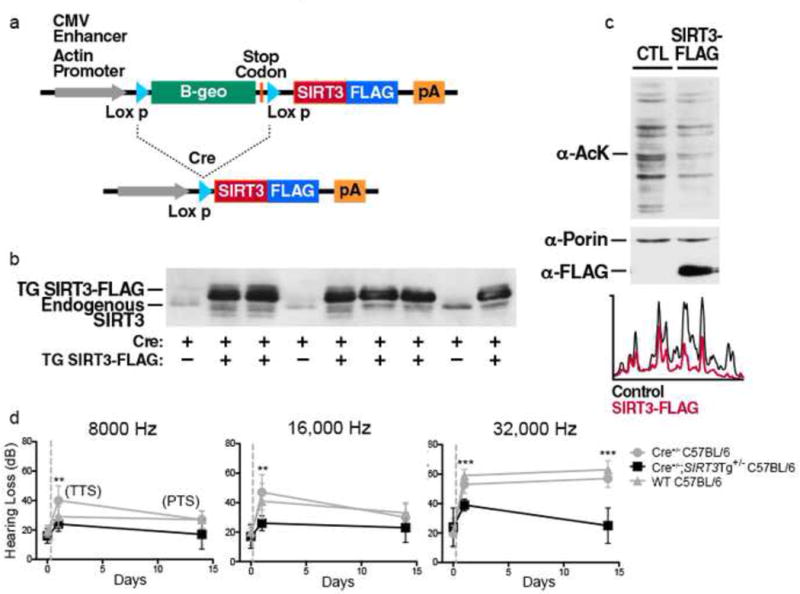Figure 3. SIRT3 transgene overexpression prevents NIHL.

(a) Schematic representation of the transgene and its modification in the presence of Cre. Cre expression results in a genomic deletion that leads to SIRT3 expression under the control of the actin promoter. The mice used in this study were crossed with a ß-actin/Cre mouse to generate offspring overexpressing SIRT3 in all cells.
(b) Confirmation of SIRT3 expression in SIRT3-overexpressing mice. Expression of SIRT3-FLAG is detected by western blotting analysis in mouse liver using specific antiserum for mouse SIRT3. The endogenous mouse SIRT3 protein is seen as a lower abundance and lower molecular weight protein (minus FLAG).
(c) Overexpression of SIRT3 is associated with a global decrease in mitochondrial protein acetylation. We wanted to determine if the FLAG-tagged SIRT3 transgene is functional. Since SIRT3 mediates the deacetylation of mitochondrial proteins, we asked if there was reduced acetylation of mitochondrial proteins in the SIRT3-overexpressing mice. Mitochondria isolated from liver of SIRT3-overexpressing mice and a littermate control were analyzed by western blotting using an anti-acetyllysine antibody. Immunostaining for the mitochondrial protein porin was used to confirm equal loading (middle panel). The autoradiogram was analyzed by a line scan (below) and shows a global decrease in mitochondrial protein acetylation (Wild type, black; SIRT3-overexpressing mice, red). These data indicate that the FLAG epitope does not inhibit the function of the SIRT3 protein and that the SIRT3-oveerexpressing mice have increased SIRT3 activity in vivo.
(d) WT C57BL/6 animals, Cre+/− C57BL/6 mice and Cre+/−; SIRT3 Tg+/− C57BL/6 mice were tested for hearing loss just prior to a 2 hr 90dB noise exposure, 24 hr after noise exposure, and 14 days after noise exposure. C57BL/6 Mice with SIRT3 overexpression were protected against both transient and permanent NIHL most markedly at higher frequencies. Statistical analysis was performed using a two-way ANOVA followed by a Bonferroni post-test (**P < 0.01, ***P < 0.001). Error bars represent SD.
